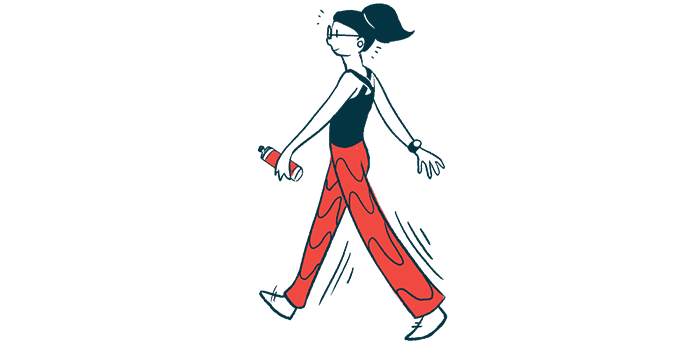Cionic Collaborates With Fuseproject on Neural Sleeve
Wearable device is designed to help MS patients' walking problems
Written by |

Cionic has collaborated with the multidisciplinary design firm fuseproject to further develop its artificial intelligence-powered, wearable Neural Sleeve, which improves mobility for those living with conditions such as multiple sclerosis (MS).
The partnership with Yves Behar and his firm fuseproject resulted in a design that focuses on the user experience. The Neural Sleeve, which is worn around the leg, was cleared by the U.S. Food and Drug Administration in March.
“It was imperative to us that the product not only has a significant improvement for users physically but also to remove some of the emotional burdens that come with having a difference,” Behar, CEO and founder of fuseproject, said in a Cionic press release.
“This meant building a product in tandem with potential users so we understood their needs and could create the best possible solution. Good design serves to humanize technology and provide life-changing solutions,” Behar added.
The Neural Sleeve, which now is available in multiple colors and sizes, aids walking in MS patients and individuals with other conditions that impair mobility. It detects movements during walking and electrically stimulates muscles. In turn, this can help to mitigate walking issues that result from leg muscle weakness or foot drop, which occurs when the front of the foot fails to lift up when taking a step.
MS patient Beverly Chaidez, who participated in one of the home usability trials Cionic conducted to understand the garment’s impact over time, said her ability to walk has greatly improved since she began using the Neural Sleeve.
“When I started the home usability trial, I was only able to walk for about five to 10 minutes at a time, and I used a wheelchair for mobility outside of the home. Today, I can walk for 40 to 50 minutes at a time and I haven’t used my wheelchair in over a month. I feel hopeful and optimistic that I can regain a lot of things that I lost,” said Chaidez.
In the studies, 32 participants with foot drop due to neurological conditions, including eight with MS, showed “strong” improvement in patients’ ability to raise their toes above the ground and a reduction in turning in of the foot during swing — two key measures associated with foot drop.
The two measures combined resulted in an average improvement of 9 degrees, far exceeding the 5 degrees that are considered clinically significant.
In a recent CBS News broadcast, a woman who lives in the Bay Area of San Francisco, California, where Cionic is based, said that for 15 years cerebral palsy had caused her to experience foot drop, problems with gait, and overall difficulty with movement. The Neural Sleeve has helped to ease those symptoms significantly.
“My whole vista has opened up and changed,” she said. “It’s really amazing. I feel like I’m in the middle of a medical miracle.”
A ‘holistic approach’
“Building bionic clothing that can augment human movement takes a thoughtful and holistic approach,” said Jeremiah Robison, Cionic founder and CEO. “It starts with advanced technology capable of adapting to each user’s mobility needs to deliver meaningful outcomes. Then we designed it to be comfortable to wear and effortless to use. From software to soft goods, our team of experts have pushed the boundaries of human-machine interface to deliver the future of assistive technology,” he said.
“Ultimately, we are creating not just a single solution, but a platform for bionic clothing that can analyze, predict, and augment human movement for all,” Robison added.
The company is accepting pre-orders for delivery by early next year. Those interested in the device are invited to take a five-question assessment to determine if the Neural Sleeve is a good fit for them.



